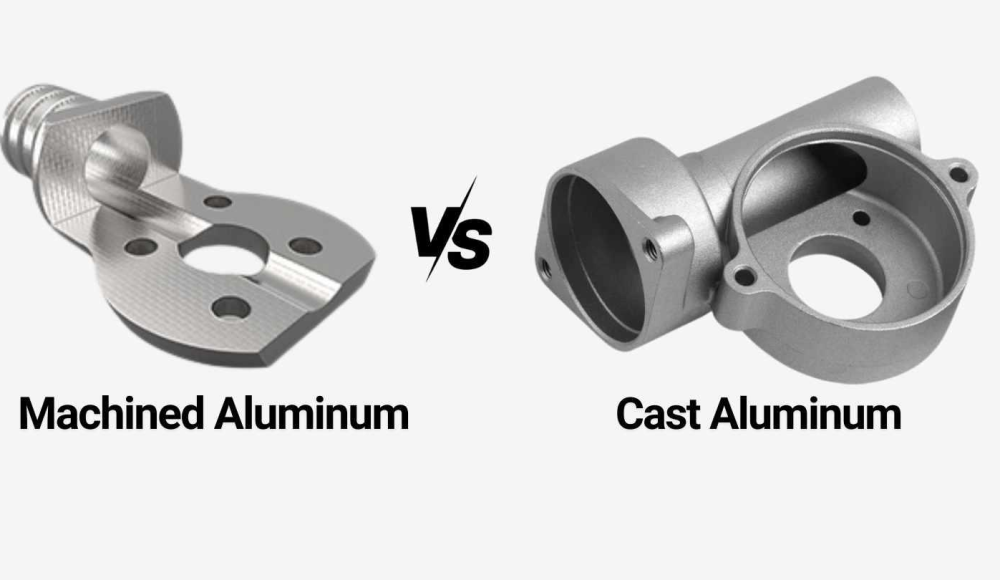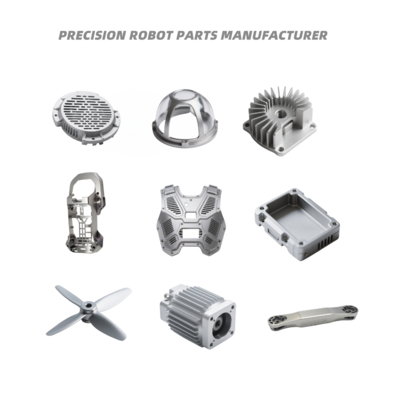The Duty of Aluminum Foundries beforehand Lightweight Production Solutions
Light weight aluminum foundries substantially add to the advancement of lightweight production options. Their ingenious casting technologies produce high-strength, light-weight components important for markets such as vehicle and aerospace. This improvement not just improves product performance however likewise advertises sustainability via using recycled products. As these shops adapt to emerging innovations and practices, they lead the way for future advancements in producing effectiveness and ecological duty. What lies ahead in this transformative trip?
The Advantages of Lightweight Products in Production
As industries progressively look for effectiveness and sustainability, the fostering of light-weight materials in manufacturing has actually arised as an important technique - Precision aluminum casting. These materials, especially aluminum and composites, provide countless benefits that boost manufacturing processes and product efficiency. Mostly, their minimized weight adds to reduce power usage during transportation and procedure, leading to substantial price financial savings
In addition, light-weight materials help with the style of more complex geometries, permitting better technology in product development. This flexibility often leads to enhanced capability and efficiency, dealing with the progressing needs of modern consumers.
In addition, using light-weight products can enhance the durability of products because of their resistance to rust and exhaustion. This sturdiness not just lowers maintenance expenses but also supports sustainability campaigns, as longer-lasting products contribute to less waste. To summarize, the advantages of lightweight materials are essential in driving efficiency, development, and environmental obligation in manufacturing.
Innovations in Aluminum Casting Technologies
Current advancements in light weight aluminum casting technologies are transforming the manufacturing landscape, particularly in the production of lightweight elements. Technologies such as high-pressure die casting and vacuum cleaner pass away casting have actually greatly improved the accuracy and surface coating of light weight aluminum parts - Aluminum Foundry. These techniques permit the development of complex geometries while lessening material waste and enhancing mechanical homes

Additionally, the implementation of real-time surveillance systems ensures high quality control throughout the spreading procedure, causing even more regular product outcomes. Collectively, these advancements not only enhance the efficiency of aluminum components but additionally sustain the industry's change in the direction of even more sustainable manufacturing practices.
Applications of Aluminum Components in Different Industries
While light weight aluminum elements have long been utilized in numerous sectors, their adaptability and lightweight residential or commercial properties remain to drive cutting-edge applications across industries such as automotive, aerospace, and building. In the automobile industry, light weight aluminum is significantly used for engine blocks, wheels, and body panels, improving gas efficiency and efficiency. Aerospace makers leverage aluminum for airplane structures and elements, profiting from its strength-to-weight proportion to improve fuel economic situation and haul capability.
In the building and construction industry, light weight aluminum is preferred for home go to website window frameworks, roofing, and structural aspects, offering longevity and resistance to deterioration while decreasing overall structure weight. In addition, the electrical and electronics markets profit from aluminum's conductivity and lightweight nature, using it in wiring, units, and warmth sinks. These diverse applications highlight the critical function of light weight aluminum parts, which not only fulfill sector demands yet also add to advancements in item design and performance across multiple fields.
Sustainability and Power Effectiveness in Aluminum Foundries
The light weight aluminum shop sector plays an important duty in advertising sustainability and power performance, particularly as need for light-weight parts remains to grow across various fields. Foundries are progressively adopting eco-friendly techniques, such as using recycled light weight aluminum, which considerably reduces power consumption and greenhouse gas exhausts contrasted to primary aluminum manufacturing.
Advancements in casting technologies boost energy effectiveness by maximizing the melting procedures and minimizing waste. Techniques like die spreading and investment casting permit for specific product use, decreasing excess imp source and scrap.
In addition, lots of factories are investing in renewable power sources to power operations, even more lowering their carbon impact. Applying power monitoring systems enables foundries to improve and keep an eye on power usage, ensuring they operate at peak effectiveness.

Future Trends in Lightweight Manufacturing Solutions
How will emerging modern technologies shape the future of lightweight manufacturing solutions? Innovations such as sophisticated materials, automation, and additive production are readied to redefine manufacturing procedures. The integration of smart production innovations, consisting of the Internet of Things (IoT) and expert system (AI), will enable real-time tracking and optimization, boosting effectiveness and minimizing waste.

As sustainability continues to be a vital worry, lightweight options will progressively focus on reusing and recycling products, aligning with circular economic climate concepts. This development in light-weight production will certainly not just improve item performance yet also add to ecological objectives, guaranteeing that the industry continues to be affordable in a quickly altering market landscape.
Often Asked Concerns
Just How Do Light Weight Aluminum Foundries Make Sure Quality Assurance in Manufacturing?
Aluminum factories assure quality assurance in manufacturing with extensive screening, standardized procedures, and constant tracking - Aluminum Casting Company. They execute advanced modern technologies and experienced employees to preserve uniformity, minimize issues, and meet industry requirements throughout the production process
What Are the Main Tests Faced by Light Weight Aluminum Foundries?
Light weight aluminum factories encounter obstacles i thought about this such as fluctuating resources expenses, keeping production effectiveness, making certain constant top quality, adapting to technological developments, and conference ecological laws, every one of which impact their general functional performance and competitiveness out there.
How Does Aluminum Recycling Impact Foundry Workflow?
Light weight aluminum reusing substantially enhances foundry operations by lowering resources costs, minimizing energy intake, and lowering environmental influence. This sustainable practice makes it possible for shops to enhance performance while fulfilling increasing demand for lightweight, high-performance aluminum items.
What Skills Are Needed for Workers in Light Weight Aluminum Foundries?
Employees in light weight aluminum foundries call for skills in metallurgy, machining, top quality control, and safety techniques. Efficiency in operating machinery, recognizing alloy properties, and analytic are likewise important for reliable production and maintaining high safety and security requirements.
How Do Aluminum Foundries Handle Waste Management?
Aluminum factories take care of waste via reusing scrap metal, making use of efficient waste partition techniques, and sticking to environmental regulations. They execute lasting practices to minimize land fill contributions, ensuring that hazardous products are dealt with sensibly.
Aluminum shops substantially add to the evolution of light-weight production remedies. Recent innovations in aluminum spreading technologies are revolutionizing the production landscape, particularly in the production of lightweight parts. While aluminum parts have actually long been made use of in various industries, their versatility and lightweight residential properties proceed to drive cutting-edge applications throughout fields such as vehicle, aerospace, and building. In addition, the electric and electronics sectors benefit from aluminum's conductivity and lightweight nature, using it in circuitry, enclosures, and warm sinks. The aluminum foundry sector plays a vital role in promoting sustainability and energy performance, especially as demand for lightweight parts proceeds to grow across different fields.